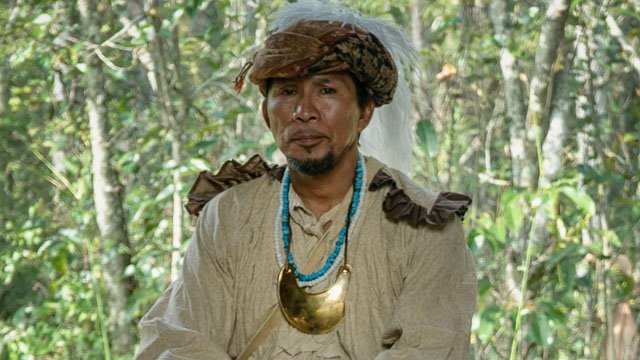
Florida, 1832 - 1866
The troops at Fort Brooke knew him as the poor Indian who sold fresh fish at sunrise. They did not know his name and gave him one in their own language. Soon, they would come to curse it.
Because the fishmonger was really a chief, and while he sold his catch, he counted. There were more soldiers all the time. He knew the reason why. They were trying to remove his people from their land.
The government of the United States wanted to send the Indians to territory west of the Mississippi. A group of chiefs had gone to look at the land. He had not gone, sending another in his place. He frequently declined the invitations of white men. The message would be passed along that he was old and ill. He was neither.
At 51 years old, he could pole his canoe clear across the swamp, from Big Cypress in the west to Pine Island in the east. He knew each secret slough and hidden passage. He made medicine and planted crops and salvaged wrecks along the coast for supplies.

A few years later, when the war with the Americans started in earnest, he became War Chief. As War Chief, he fired the first shot before falling back to tend to the wounded. He let others, like the young lieutenant Osceola, take the spotlight. Under his leadership, the Indians saw early victories.
Some chiefs were captured. Others capitulated. Micanopy was one who had agreed to go west. Seven-hundred of his people waited for transport near Fort Brooke, where the War Chief once sold fish. Now he stole people, all of them, in the dead of night, spiriting them back to their home in the swamplands. He was elected Great War Chief, leader of all the tribes in Florida.
The Americans tried new strategies. They sent other Indians to persuade him to leave. The messengers warned him of the blood that would be shed, the responsibility that would be his alone. Still, he refused, preparing his battlefields more carefully than ever before. At Okeechobee, he had the tall sawgrass cut to make way for fire, and scored the trees to balance the guns. After the battle, the Americans had to call for all the surgeons in Tampa.
He continued to evade his enemy. When two Indian prisoners offered to lead the Americans to the Great War Chief, they were killed by their own people along the way. Finally, the Americans dared enter the swamp themselves, they found his camps, but not the Great War Chief, who escaped each time in his canoe. To the soldiers, he was a ghost, everywhere and nowhere at once. They had heard he talked to invisible things; that he could kill a horse without touching it; that he controlled destinies.
An offer was made: the Indians could stay for an unspecified period of time. A conference was called. The Great War Chief excused himself and sent someone else. He was too old. He was too sick.
When news of the proposed peace terms reached him, he was not displeased. To stay had been all he wanted. He did, however, wish to hear it for himself. And so he showed up unannounced at Fort Lauderdale, a 58-year-old man (who looked far younger) in perfect health. When he returned to his people, it was with the directive that they would continue to deflect migrations, but that they would not fight the Americans anymore.
His resolve was firm even as other chiefs agitated for more war. When a rogue band of Indians attacked a settlement, he appeared before the Americans once again, this time with his family in tow, to express his regret and promise to carry out the punishment himself. He said he had never lied to a man. When he did, then they could distrust him.
But the war continued against his will. The Americans launched a full-scale invasion of the swamp. They put a hefty bounty on his head. In Big Cypress, they found fields of corn and rice, pumpkins and squash. They destroyed the crops. Ever after, the area would be known as the “Devil’s Garden.”

The Devil himself was never caught, and when the war officially ended, he had not signed any treaties of peace. His people were fewer: Despite his efforts, some, including members of his own family, had still been convinced to leave. But those that stayed were unconquered. And so they remained.
The Great War Chief was not at war anymore. But he was still in charge and would be for the rest of his life. He planted his crops. He made his medicine. He poled his canoe down passages only he knew. He kept his people free. He died at the age of 85 and was buried in a remote corner of the swamp. His people hurried the powerful spirit over to the other side. When it was done, they were told never to speak his name.













